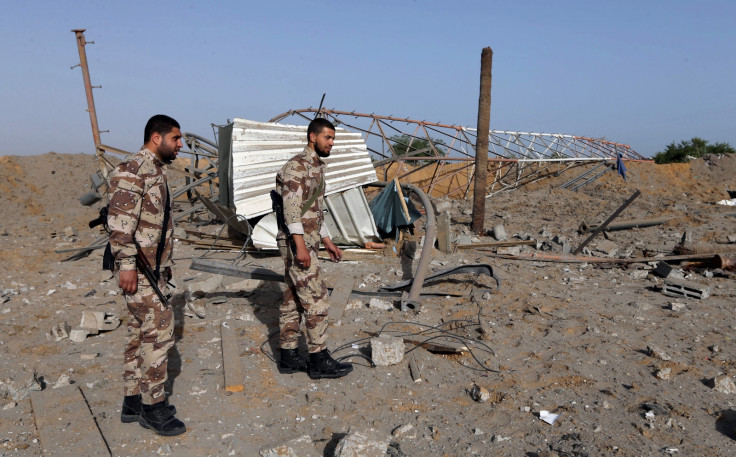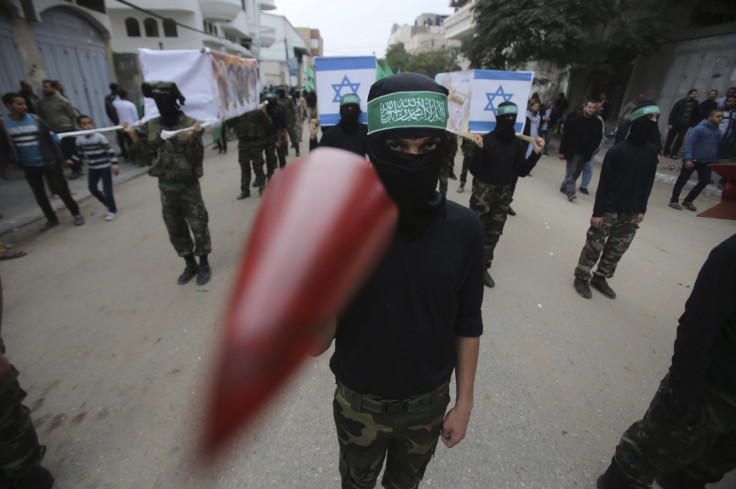Isis declares war on Israel: Islamic State affiliate in Gaza Strip threatens 'worse is coming'

An Islamic State-affiliated jihadi group in Gaza has declared war on Israel after claiming responsibility for two rocket attacks over the past two weeks.
A group calling itself the Sheikh Omar Hadeed Brigade in Quds claims that it fired a rocket on 26 May which landed near the Israeli city of Ashdod as well as another on June 3 that also hit the city. Israel responded with air strikes in Gaza on Thursday.
The first rocket was widely believed to have been fired by Islamic Jihad and the IS-affiliated Omar Brigade claim – which came in a statement on June 1 – cannot be independently verified. The group took responsibility for Wednesday night's rocket in a second statement.
We, the Sheikh Omar Hadeed Brigade, have chosen to keep our weapons pointed at the Israelis.
It has warned Israel that there will be more attacks: "Ashdod is the beginning. What's coming is worse."
Gaza is currently embroiled in an internal power struggle between Hamas and various salafi groups, of which the Omar Brigades appear to be most prominent.
On June 2, Hamas security forces killed an IS supporter in a shoot-out at his home in Gaza City and in May the Palestinian Islamist group – which has controlled the strip since 2006 – demolished a salafi mosque in central Gaza near Khan Younis.
While the Omar Brigades latest statement is explicit in its threat towards Israel, the bulk of the group's anger is directed at Hamas, which it accuses of arresting and jailing salafis across the strip, as well as confiscating their weapons and torturing them.
"Seeing as Hamas has chosen to rage war against the salafi jihadis to appease outside foreign agendas against the Gaza citizens. We the Sheikh Omar Hadeed Brigade have chosen to keep our weapons pointed at the Israelis," the statement reads.
Israel has blamed Hamas for the rockets that were fired on 26 May and 3 June, arguing that it will hold the group responsible for all attacks from the strip. Following the second rocket on Wednesday, Israel bombed what it claimed were Hamas and Islamic Jihad camps in Gaza.

Gaza has struggled to recover from the mass destruction of homes and infrastructure during last summer's 50-day war, during which over 2,200 Palestinians were killed. Over $5bn was pledged to the strip by international donors last year but it was revealed recently that only a fraction of that money has been paid to the Palestinian Authority.
The reconstruction efforts have been hampered by an almost total blockade of Gaza on three sides by Israel and in the south by Egypt, as well as the fact that the Fatah-dominated Palestinian Authority has no jurisdiction in the strip.
Fatah fought a short but brutal civil war with Hamas in 2006 following elections that the latter is widely accepted to have won. As a result, Hamas was left in power in Gaza and Fatah in the West Bank. The two parties signed a reconciliation deal in 2014 that has had little real success.
The rise of Isis/salafi groups in Gaza is a serious challenge to Hamas, which has long campaigned on its Islamist credentials and its opposition to peace with Israel. The groups has always used its ideology to persuade Palestinians to support it over Fatah and the PA, which is seen by many Palestinians as at best weak and at worst collaborators with the Israelis.
It also comes as Hamas and Islamic Jihad both are fast running out of allies. Hamas lost a powerful supporter in Muslim Brotherhood President Mohammed Morsi, who was ousted in a coup in 2013 and is now on death row in Egypt, while there are reports that Islamic Jihad has fallen out of favour with its main sponsor, Iran.
With Gaza residents fast realizing that they gained little out of last year's brutal war other than over 2,200 dead, a tanking economy and destruction on a mass scale, Hamas is sure to face increasing opposition from both Isis pretenders and moderate Palestinians.
© Copyright IBTimes 2024. All rights reserved.





















